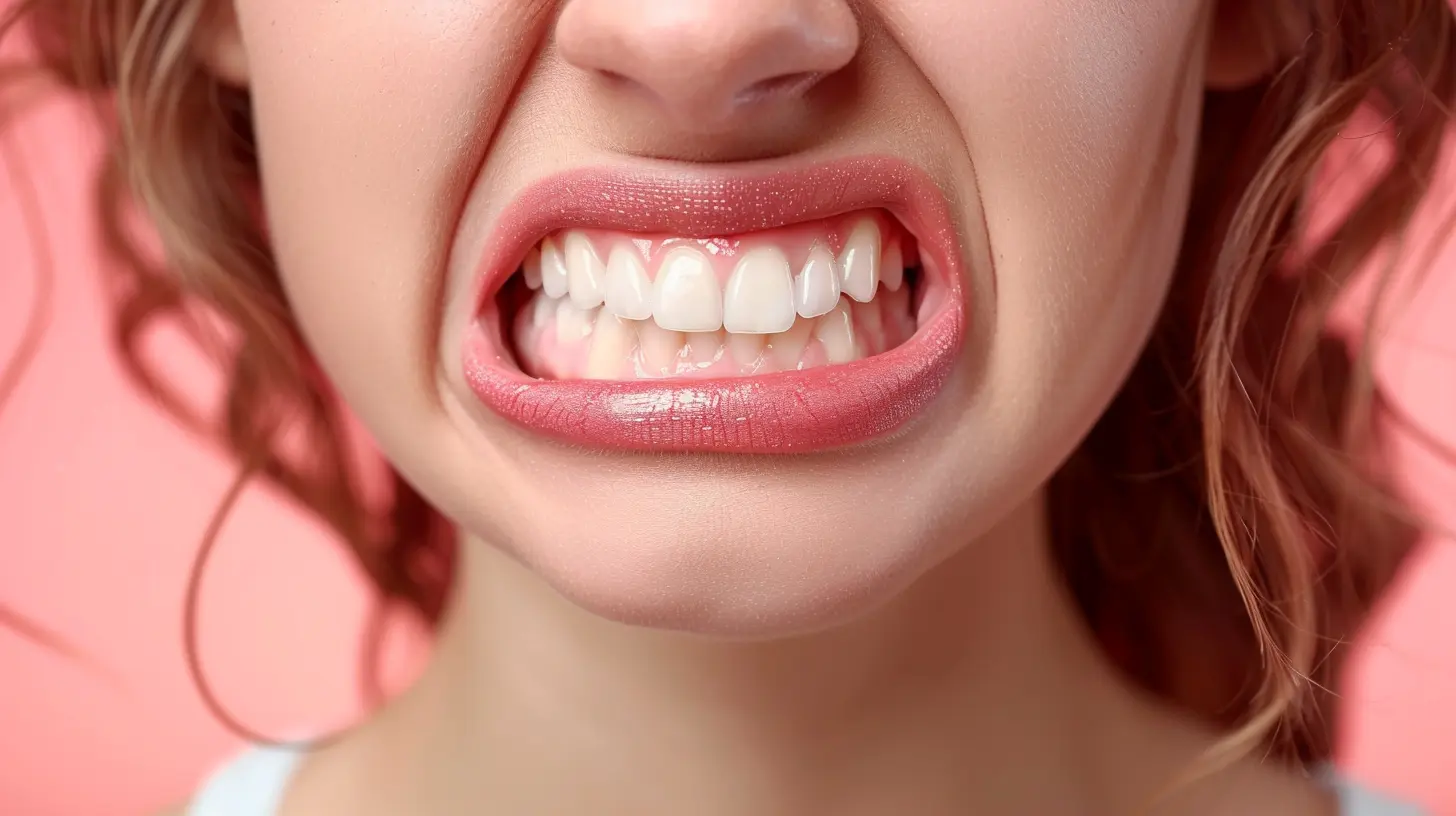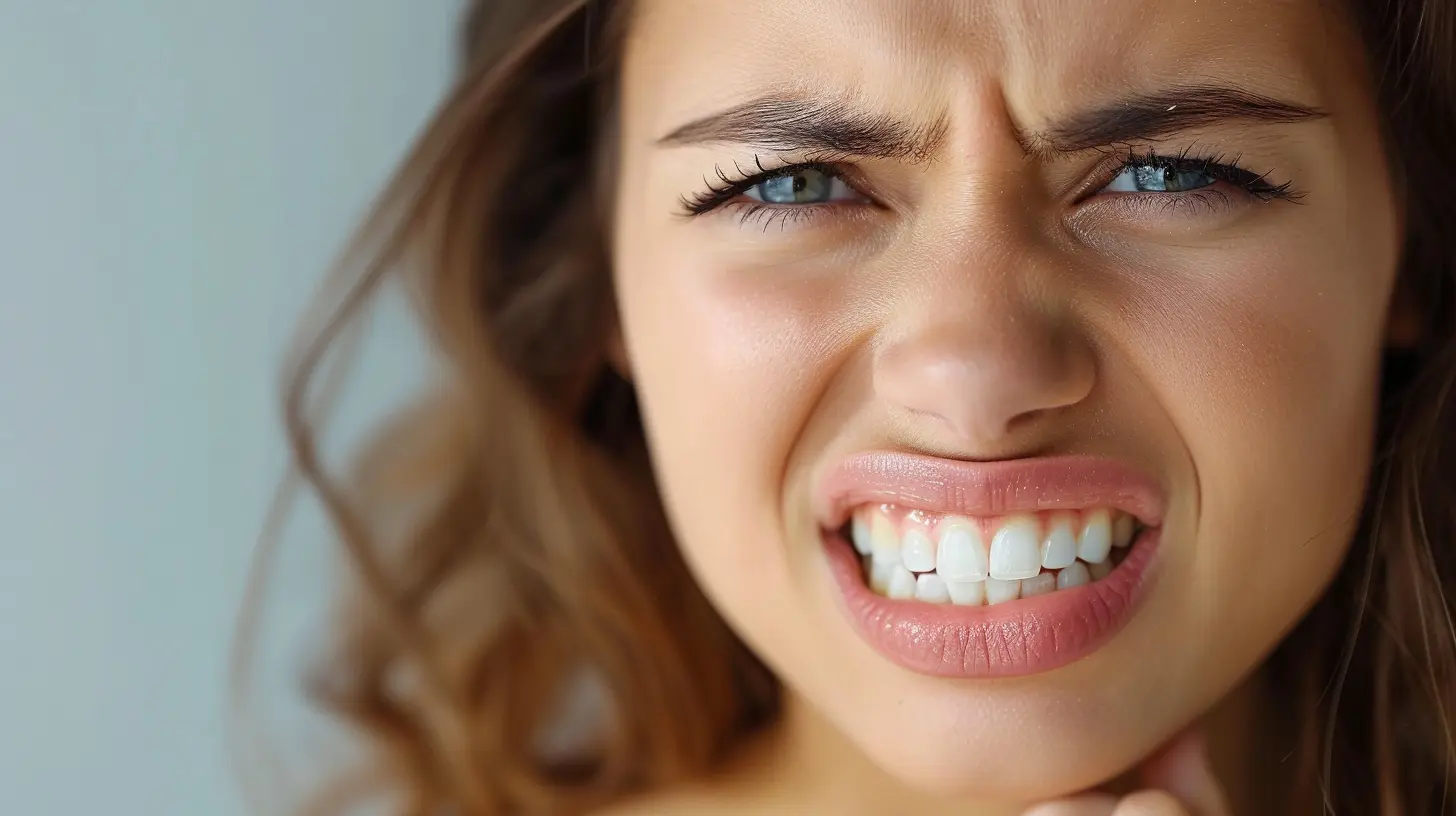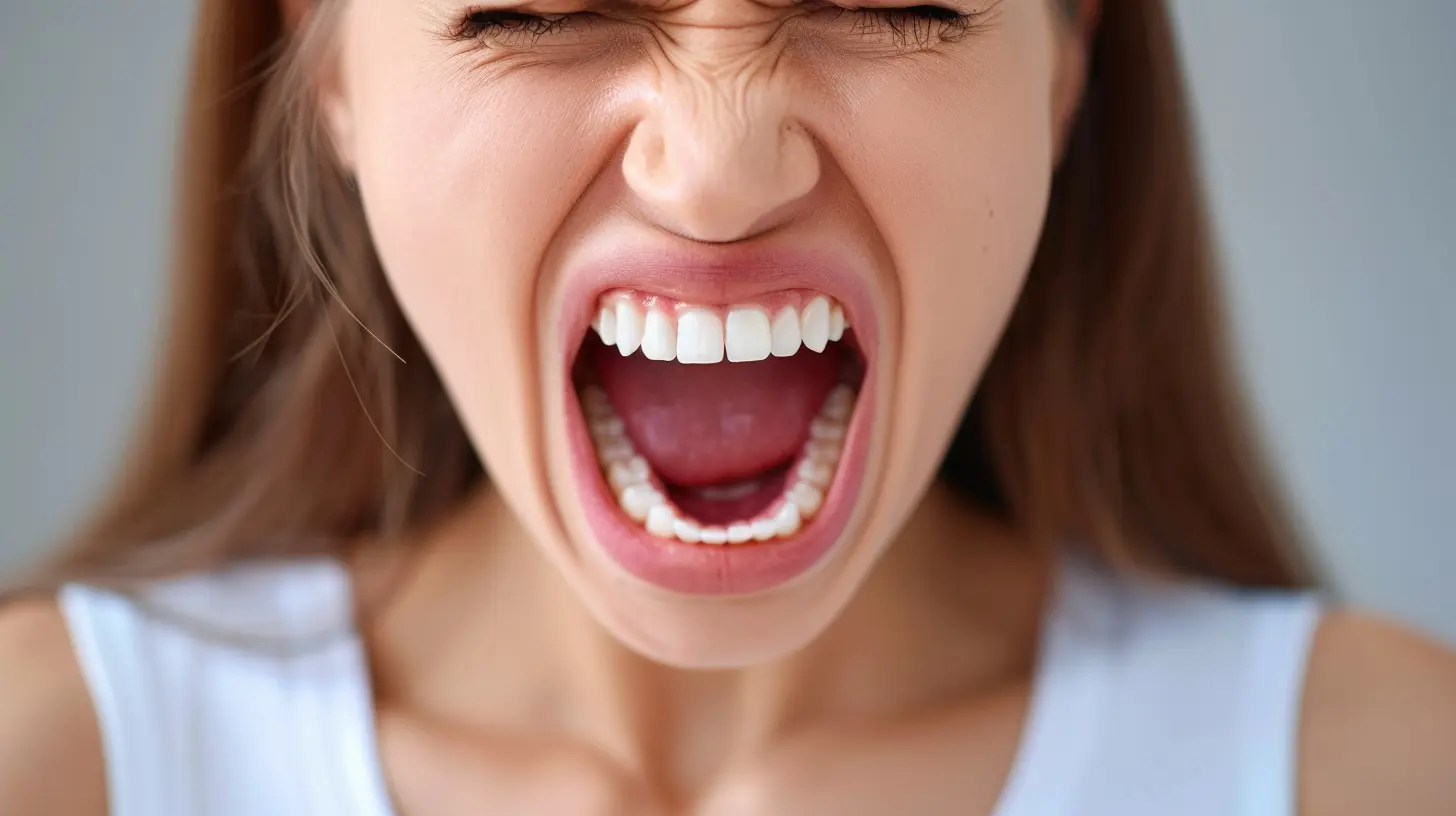Understanding the Risks of Teeth Grinding
20 May 2025
Ever wake up with a sore jaw or a pounding headache and think, “Did I get punched in my sleep?” If you're nodding yes, you might be dealing with something sneaky – teeth grinding, also called bruxism. And trust me, it’s more common (and risky) than most people think.
Let’s break down the dangers of this under-the-radar habit in a way that’s easy to follow, maybe even a little eye-opening. Because when it comes to teeth grinding, what you don’t know absolutely can hurt you.
What Is Teeth Grinding (Bruxism)?
At its core, teeth grinding is when you clench or gnash your teeth, usually without even knowing it. It can happen during the day (awake bruxism) or when you’re catching Zzzs (sleep bruxism). Either way, it’s a big deal.So Why Do People Grind Their Teeth?
Good question. No single cause fits all, but let’s look at the usual suspects:- Stress and Anxiety – Our jaws tend to carry the tension we don’t let go of emotionally.
- Sleep Disorders – Conditions like sleep apnea can trigger grinding episodes.
- Misaligned Bite – If your teeth don’t line up right, your mouth might overcorrect on its own.
- Lifestyle Habits – Think smoking, excessive caffeine, alcohol, or even recreational drugs.
- Medications – Some antidepressants and psychiatric drugs can up your risk.
And here’s the kicker – many people have no clue they’re even doing it. You could be grinding for years and not realize until damage is done.
The Silent Damage: Risks of Teeth Grinding
It’s tempting to brush this off. I mean, how bad can it really be to clench your teeth now and then, right? Unfortunately, the risks stack up fast and hit hard – especially if you don’t catch it early.1. Tooth Damage (The Obvious and Ugly One)
Let’s start with the most obvious victim: your teeth.Grinding wears them down like sandpaper on wood. Over time, enamel – that hard protective coating – gets thinner. And once enamel's gone? There’s no coming back. That means:
- Cracked or chipped teeth
- Tooth sensitivity (ice cream becomes enemy #1)
- Flattened chewing surfaces
- Increased risk of cavities
Worst case? You might need crowns, implants, or even dentures earlier than you’d ever expect.
2. Jaw Pain and TMJ Disorders
Your jaw isn’t built for a 24/7 workout. Persistent grinding puts pressure on your temporomandibular joint (TMJ) – the hinge that connects your jaw to your skull.This can lead to:
- Aching pain in the jaw or face
- Clicking or popping sounds when you chew
- Difficulty opening your mouth wide
- Lockjaw (yep, that’s as bad as it sounds)
Think of your jaw like a door hinge. Constant stress wears it out fast – and the repairs aren’t exactly cheap or fun.
3. Chronic Headaches and Earaches
If you frequently wake up with dull headaches or find yourself rubbing your temples throughout the day, you might not be dealing with migraines – it could be your grind.The tension from clenching affects the muscles around your head and neck, often mimicking other conditions. And due to the jaw’s proximity to the ears, earaches can sneak in too.
So if your doctor can't figure out the cause of your phantom headaches or ear pain, it might be time to visit the dentist.
4. Disturbed Sleep
Grinding can severely interrupt your – and your partner's – sleep. You may not notice the clenching, but your body does.Sleep bruxism can lead to:
- Fragmented sleep
- Daytime fatigue
- Mood swings
- Reduced sleep quality and quantity
And if you live with someone? That grinding sound in the night is like nails on a chalkboard. Not fun for either of you.
5. Gum Recession and Tooth Mobility
Here’s something people rarely talk about – the effects on your gums.All that pressure can push your teeth around. Over time, this can cause your gums to recede and loosen the ligaments holding your teeth in place. That leads to wobbly teeth. And yes, it can snowball into tooth loss if ignored.
Signs You Might Be Grinding Your Teeth
Not sure if you’re a secret grinder? Be on the lookout for these red flags:- Sore jaw or face (especially in the morning)
- Headaches that feel tension-based
- Tooth sensitivity
- Earaches or a feeling of pressure in your ears
- Fractured or chipped teeth with no good explanation
- Loose teeth
- Flattened biting surfaces
If your partner ever says, "You sound like you're chewing rocks in your sleep" — take that seriously!
How to Treat and Prevent Teeth Grinding
Good news – even though bruxism can cause serious damage, there are definitely ways to manage it.1. Night Guards (Your Teeth’s Bodyguards)
One of the most common treatments is a custom night guard. It fits over your teeth and absorbs the pressure from grinding. Your dentist can mold one for your specific bite, and it’s way more effective than a cheap drugstore version.Think of it like a helmet for your smile.
2. Stress Management
Since stress is a major trigger, learning how to chill can seriously help. Try:- Meditation
- Journaling
- Breathing exercises
- Regular workouts
- Therapy
You’d be amazed what a calmer mind can do for your jaw.
3. Lifestyle Changes
Sometimes, small tweaks in daily habits make a big difference. Consider:- Cutting back on caffeine and alcohol (especially before bed)
- Stopping smoking
- Avoiding chewing gum (which can overwork your jaw)
- Keeping yourself hydrated
Also, if you catch yourself clenching during the day, try to become more aware – even write a little note on a sticky pad to remind yourself to “relax the jaw.”
4. Dental Correction
If your bite is misaligned, orthodontic treatment might help. Your dentist or orthodontist can explore options like braces or Invisalign to correct jaw alignment and lessen grinding triggers.5. Botox for Bruxism
This one might sound extreme – but it’s actually gaining popularity. Botox injections into the jaw muscles can relax the area and reduce grinding.It’s not for everyone, and it’s not a cure, but for severe cases? It can drastically improve symptoms.
Why You Shouldn’t Ignore It
Teeth grinding isn’t just a bad habit—it’s a potential disaster hiding in plain sight. Left untreated, it can lead to thousands of dollars in dental work, chronic pain, and long-term oral health problems.Think of it like a small leak in your ceiling. It seems like nothing at first, but over time, it can cause the whole roof to cave in.
Taking Action: When to See a Dentist
If anything in this article felt a little too familiar, don’t wait it out. Early intervention can make all the difference.Book an appointment with your dentist if:
- You suspect you might be grinding
- You've noticed any unexplained jaw pain, cracked teeth, or headaches
- You hear clicking in your jaw
- You want to be proactive about your oral health
Your future self will thank you.
Final Thoughts
Teeth grinding might seem harmless—something you can shrug off or ignore—but the reality couldn’t be further from the truth. It’s one of those conditions that starts quietly and ends loudly, damaging more than just your teeth.But here’s the silver lining: once you understand the signs and risks, you can take action. And trust me, saving your smile is worth every effort.
So whether it's trading your stress for some deep breaths, investing in a night guard, or having a real convo with your dentist—don’t sleep on bruxism.
Your jaw, your teeth, and your peace of mind will appreciate it.
all images in this post were generated using AI tools
Category:
Healthy TeethAuthor:

Jackson Mahoney
Discussion
rate this article
3 comments
Nina Middleton
Important insights, great read!
May 28, 2025 at 3:35 AM

Jackson Mahoney
Thank you! I’m glad you found it insightful.
Talis Gilbert
Who needs sleep when you can grind teeth?
May 26, 2025 at 4:49 PM

Jackson Mahoney
Sleep is essential for overall health, and teeth grinding can lead to serious dental issues. Prioritizing rest and seeking solutions for grinding is crucial!
Hunter Jones
Grind less, smile more—your teeth will thank you!
May 22, 2025 at 3:00 PM

Jackson Mahoney
Absolutely! Prioritizing relaxation and stress relief can greatly benefit both your smile and overall well-being. 😊



